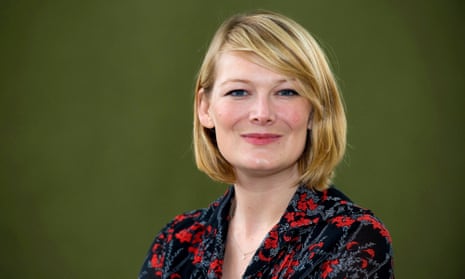Last week I was asked to take part in the Observer’s Book Clinic series and recommend British novels about (and ideally written by) working-class people. It was meant to be a simple exercise, enjoyable even, giving exposure to excellent, largely under-the-radar writers – yet, from the reaction, you’d think I’d recommended my top 10 Nazis.
I write about child poverty, homelessness and mental health and, in a time when it’s not that fun to be a woman with an opinion on the internet, I expect to get some backlash. But a short piece recommending my favourite novels? Surely that couldn’t cause offence. How wrong I was. It seems the term “working class” is not so much a social identity as a grenade waiting to go off.
The piece that went up online was headlined “Where are all the working-class writers?” Perhaps a little along the lines of clickbait but, given that it related to the question and it was part of a series called Book Clinic, it seemed self-explanatory.
Not so. By the end of the day the article – and I – had become a target of mass Twitter frustration. The most vocal, and high-profile, critics were those who said that working-class writers were in fact “hiding on the bestseller lists, as writers of popular fiction”. Others chimed in to say the piece was symptomatic of literary elitism in an industry where “working-class genre writers don’t count”, and finally came those who simply took issue with the sweeping term “working class”: “who decides who’s working class anyway?”
I spent three days at my keyboard trying to clarify matters. No, I repeated, it was not an indication of the erasure of commercial working-class writers because that wasn’t a distinction I’ve ever made. Good books are good books. (I did, in fact, almost include the excellent Val McDermid, but felt she was doing pretty well without me.)
Yes, I understood how problematic and general the term “working class” was but, like “middle” or “upper”, it’s shorthand. It puts us in the ballpark – albeit a very large one – and “socio-economically disadvantaged writers” just isn’t catchy. Besides, I’d taken particular care to include only people on my list of recommendations who I knew publicly identified as working class. I grew up well below the poverty line in a collection of council estates and B&Bs. By most I’d be categorised as sub-class. I identify as working class. Like my sexual orientation, politics and football team, it’s a matter of self-identification.
There were some who felt that since many had “pulled themselves up by their bum cheeks”, inequality of opportunity in publishing must be a myth. Power to those writers if they become millionaires, or even can pay their mortgages, but the statistics show it’s still far from a level playing field. A recent report, Panic! 2018 Social Class, Taste and Inequalities in the Creative Industries, suggested that only 12.6% of workers in publishing are of working-class origin, and the Society of Authors says the average income for a professional author in 2017 was £10,500, which is well below the minimum wage.
The Twitter storm continued. I answered where I could – you’re shouting at me about pears when I wrote about apples! – and then logged out after developing insomnia and an anxiety rash that took me off to the doctor.
Eventually my ire and the rash died down. I realised the backlash was perhaps never anything to do with my innocuous piece. Instead, it was about long-standing divisions within the literary community, genre writers feeling “othered”, the frustrations of those trying to get published in a class-biased industry. It was about navigating the always-complex ground of identity politics, representation and access where everyone is individual but also part of the same structure. Those things I understood only too well.
The publishing industry does need to improve, not just in class diversity but right across the intersection. This begins with diversifying the gatekeepers and taste-makers, agents and editors. Some steps have been taken towards this: diversity schemes have been implemented and it seems paid internships are slowly becoming the rule, not the exception. There are campaigns for wage transparency in job adverts because, guess what, some people work to pay the rent.
To try to draw focus to the huge wealth of talent waiting to be discovered, there has been a spate of successful author-led anthologies, notably The Good Immigrant, edited by Nikesh Shukla, and Kit De Waal’s forthcoming Common People.
The argument of genre versus literary, an argument of division and hierarchy, serves no one. Quite the opposite: all writers, perhaps particularly high-profile ones, are valuable role models to those starting out.
A life struggling to find the rent and working for less than minimum wage can seem unappealing to writers who have no financial safety net (I speak from experience), so it’s a wonderful thing if those who make a decent living are visible and vocal. If you have leverage within the industry, ask for changes that make it easier for those coming up. Send the elevator down. Growing up, I always believed writing books was something other people did, that what I had to offer was worth nothing. I wish I’d known then of writers from backgrounds like mine who were doing it and doing it well.
I do believe there is a groundswell of support for greater representation. Publishers, media and literary festivals are asking more questions about inclusion. These are questions that should be welcomed because with them comes awareness, and with that comes the accountability for change to finally be made.
